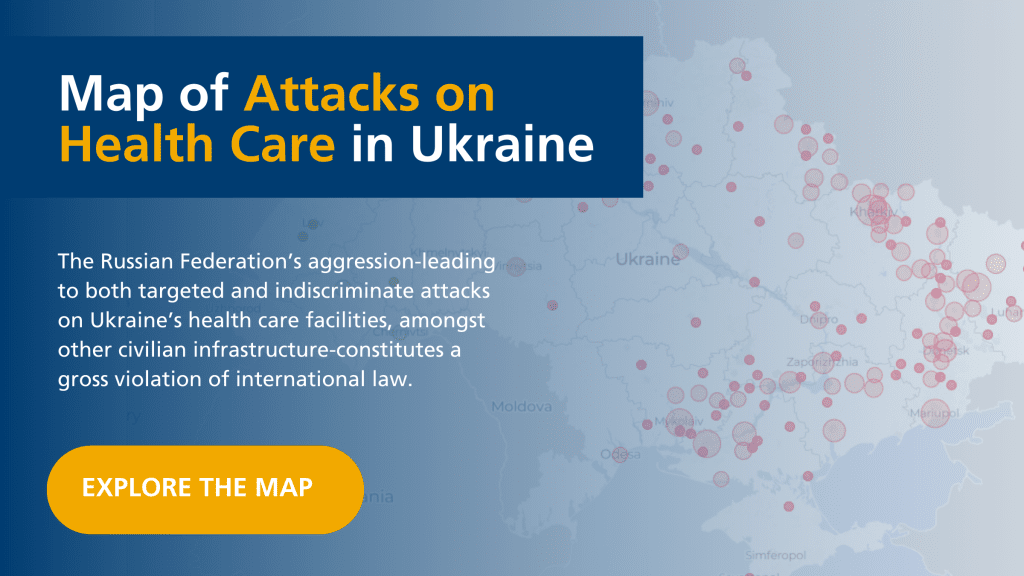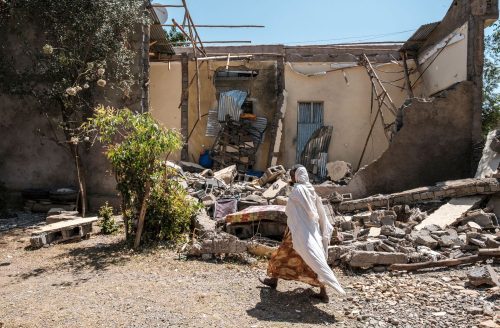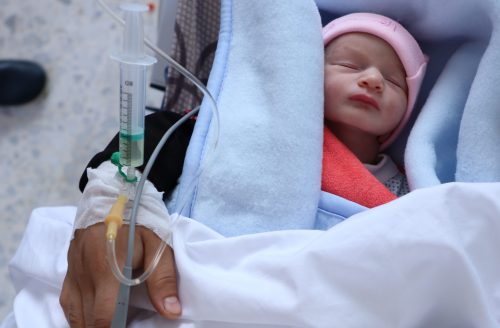The 54th session of the UN Human Rights Council (HRC) concluded last week with at best mixed results – and certainly mixed signals – regarding the Council’s commitment to health and human rights. Together with national, regional, and international partners, Physicians for Human Rights (PHR) urged Member States and Special Procedures to seek accountability for gross human rights and humanitarian law violations in Ethiopia, Syria, and Ukraine. Across those countries, we saw abdication of responsibility (Ethiopia), stalemate (Syria), and one positive signal (Ukraine), though no progress toward prevention or accountability in any of these crisis situations.
Ethiopia
Armed conflict erupted in the Tigray region of Ethiopia in November 2020 between the government of Ethiopia and the Tigray People’s Liberation Front. For the last year, the Human Rights Council’s own independent investigative body, the International Commission of Human Rights Experts on Ethiopia (ICHREE), has asserted “reasonable grounds to believe that all parties to the conflict committed serious violations and abuses, including war crimes and crimes against humanity.” They persist even following the signing of the Cessation of Hostilities Agreement almost a year ago.
PHR and the Organization for Justice and Accountability in the Horn of Africa (OJAH) reviewed 305 medical records from health facilities across Tigray. Our recent joint report documented that survivors experienced sexual violence at the hands of multiple perpetrators – sometimes in the form of sexualized enslavement – and faced significant delays in reporting and seeking medical care. Our findings were consistent with those in ICHREE’s final report, which found that combatants violated international human rights and humanitarian law and bear responsibility for “crimes of rape and sexual violence against women and girls in Tigray.” Survivors of sexual violence, primarily women and girls, who sought care between November 2020 and July 2023 in Tigray alone exceeded 10,000, according to ICHREE.
Calling the conflict “one of the deadliest of the 21st century,” ICHREE delivered a report and comprehensive investigative findings and legal determinations in this Session, concluding with a clear warning of the “acute risk of further atrocity crimes in Ethiopia.” The UN Special Adviser on the Prevention of Genocide has also warned of “the continued presence of risk factors for genocide and related atrocity crimes in the country.”
With this in mind, PHR, OJAH, the Health Professionals Network for Tigray, and other partners spent months advocating with Human Rights Council Member States to call for sustained independent monitoring. Together with Amnesty International and the International Bar Association’s Human Rights Institute, PHR and partners presented the findings of our research during the interactive dialogue on Ethiopia, side events, and briefings to highlight the urgent need for sustained monitoring and accountability, including the extension of ICHREE’s mandate.
Yet on October 4, survivors and affected communities in Ethiopia and abroad watched in disbelief as the Council let ICHREE’s mandate lapse. Member States even declined to call for weaker forms of engagement. Not even the European Union, which had called for ICHREE’s creation in the first place, took action to renew it. The resulting lack of sustained independent monitoring will inevitably lead to further impunity and unchecked abuse. The Council’s inaction has effectively eliminated its ability to scrutinize one of the most egregious human rights crises in the world today.
According to ICHREE, “The vast majority of Ethiopians asked by the Commission about accountability and healing expressed their complete lack of trust in Ethiopian State institutions to carry out a credible process of transitional justice.” Yet, in ICHREE’s place, responsibility devolves to the African Union and the joint investigative team of the Office of the High Commissioner of Human Rights (OHCHR) and the Ethiopian Human Rights Commission. Neither of these mechanisms is sufficiently independent or impartial to ensure accountability. Indeed, the African Union failed to release its own report, effectively silencing itself, and the government of Ethiopia has barred independent monitors from conducting investigations on the ground.
The Council should be credited for fully extending 14 other thematic and country mandates during this Session and for creating an independent international fact-finding mission on Sudan. But its readiness to ensure investigation of patterns of violations in Sudan but not in neighboring Ethiopia sent mixed messages about the Council’s will to pursue truth-telling and accountability on behalf of all equally. That inconsistent application of its mission risks fueling impunity for similar crimes elsewhere.
PHR is committed to working with partners to provide ongoing documentation of sexual violence, sexual slavery, and attacks on health care in Ethiopia as the conflict continues.
Syria
The 54th Council Session marked the 12th year of reporting on the human rights and humanitarian crisis in Syria through its Independent International Commission of Inquiry on the Syrian Arab Republic. As PHR’s report She Pays the Highest Price: The Toll of Conflict on Sexual and Reproductive Health in Northwest Syria documents and the Commission’s new report affirms, the situation in Syria remains dire. Debates and recommendations to the Human Rights Council on the situation in Syria have stagnated; the Commission is merely able to “reiterate” its past demands due to stark political divides among Member States.
Nonetheless, the Council’s vote to extend the Commission of Inquiry’s mandate for another year signals some commitment to seeing that one of the most entrenched and catastrophic human rights crises in the world remains part of the Council’s docket. Violations committed by the Syrian government with Russian support are still ongoing, with the most recent attack on medical facilities documented a few days ago in northwest Syria.
Ukraine
The 54th Session of the Human Rights Council provided scrutiny of ongoing war crimes and crimes against humanity in Ukraine – and, to a degree, the crime of aggression.
PHR reiterated its calls for prevention and accountability for the pattern of attacks on health care systems and medical professionals since Russia’s full-scale invasion of Ukraine in February 2022 in the form of three interventions this session. The first was via PHR’s ongoing engagement with the Commission of Inquiry on Ukraine, which presented an oral update to the Council, and engagement with Member States during the Interactive Dialogue.

The second was calling for accountability in the context of the UN Special Rapporteur on the human rights situation in the Russian Federation’s first report to the Council. PHR condemned the more than 1,000 attacks that have been perpetrated against Ukraine’s health care system; called for restitution for the $2.5 billion in damage to health infrastructure; and called out Russia’s policy of “passportization” in the temporarily occupied territories, under which access to health care and essential medicines is restricted to those with Russian passports, jeopardizing the right to health and to life.
The third intervention was calling on Member States to vote against Russia’s bid for readmission to the Human Rights Council because of its flagrant human rights violations at home and atrocity crimes in Syria, Ukraine, and elsewhere. Together with Ukrainian partners, PHR plans to build on this momentum at the Universal Periodic Review of the Russian Federation in November.
Widespread human rights abuses persist in Ukraine with near impunity. Although the Commission took tentative steps in this session to condemn violations by the Russian Federation, more sustained efforts to promote accountability are necessary. The Commission of Inquiry’s oral update, following its most recent visit to Ukraine, previewed a strong report next month to the UN General Assembly. The Council secured sustained documentation of Russia’s human rights record by extending the mandate of the Special Rapporteur on Russia for another year. And, perhaps most significantly, the UN General Assembly denied the Russian Federation’s application for renewed membership in the Human Rights Council, extracting a political price for its appalling human rights record.
It was a reminder of the power the Council can wield when it chooses to.
Photo: A view of a meeting during the fifty-fourth session of the Human Rights Council. UN Photo/Jean Marc Ferré



